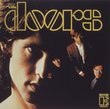| All Artists: Ludwig van Beethoven, David Zinman, Zurich Tonhalle Orchestra Title: Beethoven: Symphonies No. 7 & 8 Members Wishing: 1 Total Copies: 0 Label: Arte Nova Classics Release Date: 4/12/2005 Genre: Classical Styles: Historical Periods, Classical (c.1770-1830), Symphonies Number of Discs: 1 SwapaCD Credits: 1 UPC: 723721089559 |
Search - Ludwig van Beethoven, David Zinman, Zurich Tonhalle Orchestra :: Beethoven: Symphonies No. 7 & 8
 | Ludwig van Beethoven, David Zinman, Zurich Tonhalle Orchestra Beethoven: Symphonies No. 7 & 8 Genre: Classical
The world premiere of these symphonies on modern instruments using the New Bärenreiter Edition! The recording follows the new critical edition of the original manuscript of Beethoven?s symphonies prepared by Jonathan ... more » |
Larger Image |
CD DetailsSynopsis
Album Description The world premiere of these symphonies on modern instruments using the New Bärenreiter Edition! The recording follows the new critical edition of the original manuscript of Beethoven?s symphonies prepared by Jonathan Del Mar and recently issued as part of the complete edition of his works. David Zinman?s Beethoven symphony cycle has garnered rave reviews worldwide and won the German Record Critics? prize in 1999. It is hard to believe today, but it was not until the premiere of the Seventh Symphony on December 8, 1813 that the Viennese public first waxed enthusiastic about a Beethoven symphony. All the previous symphonies had been received somewhat coolly, or with hostility. Unfortunately, the Eighth symphony was premiered on the same concert, and its reputation suffered in comparison, a perhaps unfair judgment which has continued to the present day in many quarters. This disc continues the reissued series of Zinman?s Beethoven available on single discs. The complete box is also available! Similarly Requested CDs
|
CD ReviewsExploring the Beethoven Symphonies -- Nos. 7 and 8 Robin Friedman | Washington, D.C. United States | 10/16/2007 (5 out of 5 stars) "David Zinman and the Tonhalle Orchester Zurich recorded the nine Beethoven symphonies in the mid-1990s using the new "Barenreiter" edition of the scores edited by Jonathan Del Mar. This recording of symphonies 7 and 8 is among the best of the set; and,for symphony no. 7, one of the best available. In his recording of the Seventh, Zinman brings something new to this score: a sense of lightness and grace that is sometimes missing from more ponderous accounts. Zinman endeavors to give period-style performances on modern instruments using tempos that some listeners find too fast. In this recording, he succeeds admirably in bringing out new aspects of this beloved music.
Beethoven's seventh and eighth symphonies date from 1811 -- 1812. He would not compose his final symphony for another 12 years. The symphony no. 7 in A major was famously described by Wagner as the "apotheosis of the dance." The Seventh does not have the "heroic" character of the Third and Fifth Symphonies. Rather, it is a work of never-ending rhythm and movement, of short, repeated and varied themes that speak of ecstasy, gaiety, bacchanalic passion, and tragedy. In his book, "Late Beethoven", Maynard Solomon devotes a learned chapter to the Seventh as the predecessor of Beethoven's late style. Solomon finds the Seventh a mix of classicism and romanticism, and he tries to show the relationship of the musical pulse of each movement with the varied rhythmic patterns of Classical Greek poetry. I don't know of any recording that captures the swirling lightness of the Seventh in the way that Zinman's does. The highlight of the Seventh is the famous second movement, the Alegretto, which recalls the Funeral March of the the Third Symphony. Zinman takes this movement at a true allegretto -- none too slow -- and in his quicker-paced than customary reading he brings out the beauty and grace of this movement together with its high seriousness. The reading made me want to reflect and to weep, but it also made me want to move with joy -- a rare combination beautifully realized. (I felt something of this in Zinman's reading of Beethoven's late work, the Missa Solemnis). The remainder of the symphony receives a similarly incandescent reading. This is the last Beethoven symphony with a slow introduction, and Zinman plays it admirably to build up tension and expectation for the swirling Vivace which follows. (Hector Berlioz described the opening movement as a "peasant dance", and Carl Maria von Weber wrote, upon hearing the repeated rhythmic phrase in the bass and cello near the end of the movement that Beethoven was "ready for the madhouse".) The third movement is a vigorous scherzo with a lead role for the horns and a repetition of the trio, similar to that of the Fourth Symphony. And the finale of the Seventh is a movement of true orgiastic frenzy. This is a freshly outstanding reading of a great symphony. The Symphony no. 8 in F major is the shortest of the nine and, as is the Symphony no. 4, is sometimes unfairly overlooked in favor of its larger companion. After the Eighth failed to win the immediate public approbation that was accorded to the Seventh, Beethoven reputedly told his pupil Carl Czerny, "That's because it's so much better." The Eighth is a work in which classical form is pushed to extreme with its two rough, rowdy and humorous outer movements surrounding two short movements of lyricism. The Eighth is the only one of the symphonies without a true slow movement. The second movement is a lightly-paced allegretto with a lacy, flowing theme over a tick-tock accompaniment. (For many years, this movement was thought to be based upon the invention of the metronome.) The lovely minuet (a recollection of an earlier day) is also graceful and dance-like in character. These two movements are surrounded by a brusque, syncopated and humorous opening movement, the longest in the work, and by a perpetuum mobile finale full of surprises and high humor. The Eighth deserves more accolades than it has received in the pantheon of Beethoven's symphonies, and, if it does not shed new light on the work as does his reading of the Seventh, Zinman's performance is highly convincing and satisfying. Robin Friedman " |

 Track Listings (8) - Disc #1
Track Listings (8) - Disc #1








